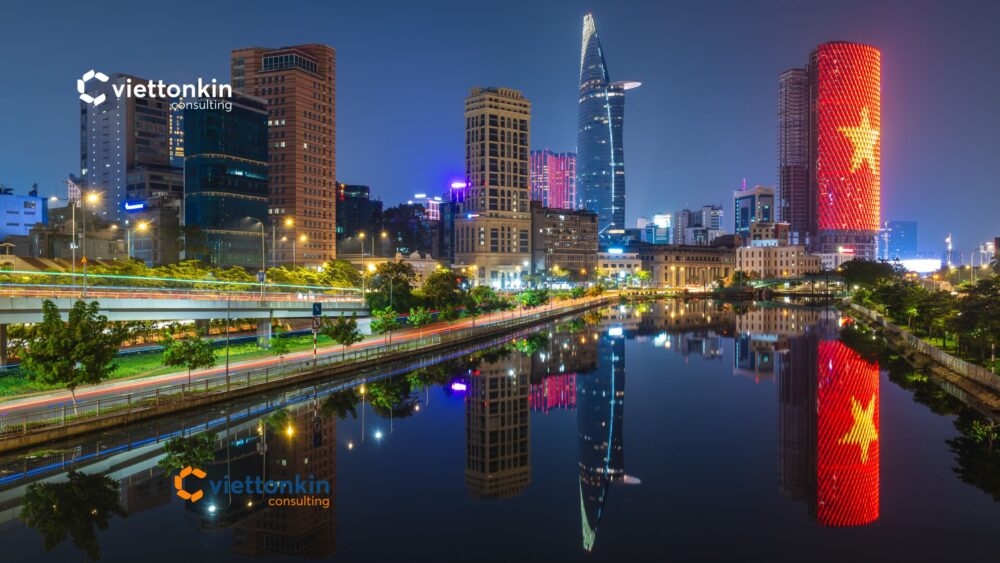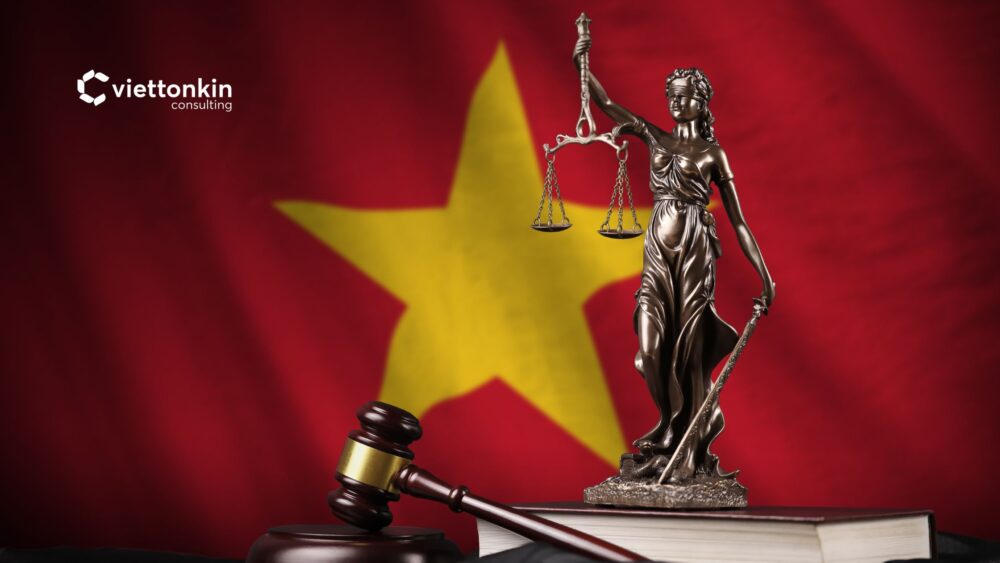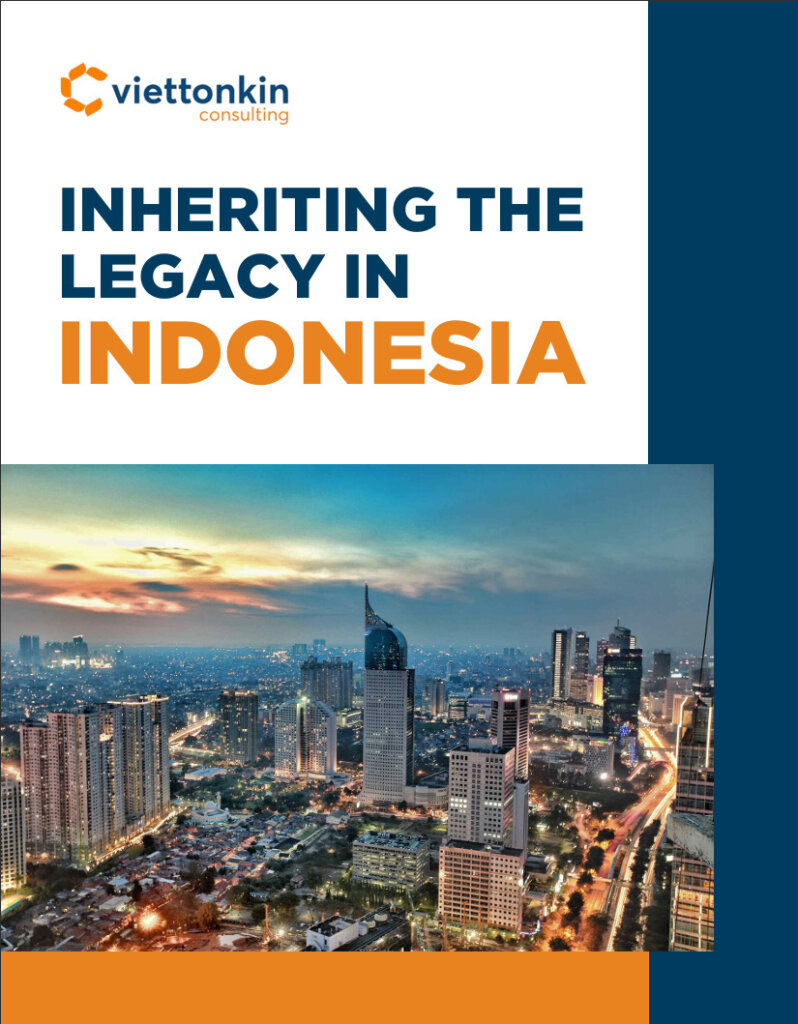Vietnam is rapidly establishing itself as a key player in the global pharma industry, evolving into a critical hub for global health and pharmaceutical manufacturing. Vietnam is also positioning itself to meet global demand for pharmaceuticals by leveraging its manufacturing upgrades and export-oriented policies, ensuring its supply chain can serve international markets. As one of […]
Ever wondered how to align your investment strategy with one of Southeast Asia’s fastest‑growing markets? As a strategic consultant who has spent over two decades guiding FDI and manufacturing investments in powerhouse markets like Vietnam, China, and Malaysia, I’ve had a front-row seat to incredible transformations. Right now, all eyes are on Vietnam, where the real estate market is poised for a significant new cycle.
Vietnam has emerged as a leading property destination in Southeast Asia, propelled by robust GDP growth, major infrastructure projects, and the 2025 amendments to the Land Law and Housing Law. Opportunities abound—but tapping them requires a clear understanding of the updated legal framework.

Key Takeaways:
- A New Growth Cycle: After a correction phase, Vietnam’s market will enter its growth phase in 2025, driven by the 2025 Land Law and Housing Law amendments and recovering economic fundamentals.
- Industrial & Logistics Lead the Way: Supported by Decree 35/2024/NĐ-CP on industrial land leasing and the “China+1” supply‑chain shift, this segment remains the market’s engine.
- Residential Market on the Rebound: Effective January 1, 2025, the revised Housing Law clarifies homeowner rights and disclosure duties, boosting buyer confidence—especially in the affordable and mid‑range segments.
- Green Buildings Gain Traction: Pursuant to Circular 03/2024/TT‑BXD on green building standards, sustainability credentials now command premiums in office and industrial spaces.
- Strategic Caution Required: While the outlook is positive, challenges remain: tightened bank capital requirements under Basel III, potential delays in Decree issuance, and credit access constraints.
Vietnam’s Property Market at a Glance
Overview of market growth and size
Vietnam’s real estate market has been a story of rapid expansion, mirroring the country’s impressive economic ascent. The rise in property prices and demand has been notable, reflecting positive momentum across various sectors. After facing headwinds in recent years, the market is now showing clear signs of stabilization and is on the verge of a fresh cycle.
There is a rising demand for industrial land, logistics facilities, and residential units, fueled by economic growth, urbanization, and infrastructure development. According to JLL Vietnam’s Q1 2025 Market Report, the property sector is poised for a new growth phase in 2025—backed by healthier capital flows and clearer land‑use regulations under the amended Land Law. Post‑COVID, the market underwent a needed correction. Now, with resilient GDP growth (6.5% YoY in Q2 2025) and FDI inflows again on the rise, stabilization is underway.
Post-COVID recovery and economic influence
The post-pandemic era has been a recalibration period. Like a tide that recedes before it rises again, the market underwent a necessary correction. Recent economic and regulatory changes have led to increased investor confidence, paving the way for renewed activity in the sector. Now, fueled by Vietnam’s resilient GDP growth and strong FDI inflows, the foundations for a sustainable recovery are solidifying. Investors expect the market recovery to bring new opportunities and continued growth in the coming years. This economic momentum directly translates into greater demand across all property segments.
2024–2025 performance summary
The market in 2024 was characterized by a gradual recovery, with investor confidence slowly returning. During the 2024–2025 period, property prices have shown signs of stabilization as government policies and market regulation efforts aimed to prevent excessive inflation and maintain market stability. According to an industry insider cited by VietnamPlus, 2025 is expected to mark the beginning of a new cycle for the housing market, suggesting that the groundwork for a rebound has been laid. The focus has shifted from high-end speculation to real-world demand in mid-range and affordable housing.
Key Segments in Vietnam’s Real Estate Market
Residential property (condos, landed homes)
The residential sector remains the heart of the market for individual investors. The residential segment is a key driver of demand, attracting both local and foreign investment due to its growth potential. Ongoing urbanization and population growth have led to a significant demand for new housing units, especially in major cities. Condominiums in major urban centers are the most accessible entry point. While the luxury segment faced a slowdown, the demand for well-located, affordable housing is immense and continues to grow. However, legal restrictions on owning houses and house ownership by foreigners in Vietnam present challenges. Under Article 159 of the Land Law 2013 (amended 2025), foreigners may hold residential leaseholds for up to 50 years, which are subject to provincial quotas (a maximum of 30% of units in a project). Urban condo demand remains robust, especially in the affordable and mid-range tiers.
Commercial real estate (retail, office space)
The office market is undergoing a significant transformation. As outlined in CBRE’s March 2025 Asia Pacific Real Estate Market Outlook, there’s a “flight to quality,” with tenants prioritizing modern, green-certified buildings. This trend is creating clear winners and losers among office assets. The growing demand for commercial properties in Vietnam is driven by rapid urbanization and increased foreign investment. Additionally, the emergence of premium properties in the commercial real estate market is attracting investors seeking high-end assets. Retail is also recovering, adapting to new consumer habits with more experience-focused models.
Industrial & logistics (warehouses, manufacturing)
This is the undisputed champion of Vietnam’s real estate market. Fueled by the global “China+1” supply chain strategy, demand for warehouses and modern manufacturing facilities is booming, making industrial real estate a key driver of Vietnam's economic growth. The expansion of this sector is actively supported by government policy.
Under Decree 35/2024/ND-CP, the government has streamlined industrial land leasing, fueling the development of new warehouse and factory build-outs. Major industrial parks, such as VSIP I & II and Amata Long An, are thriving with over 90% occupancy, demonstrating the sector's robust health and appeal to both domestic and foreign investors. This segment is a prime example of how strategic Foreign Direct Investment (FDI) and a supportive regulatory environment can power an entire sector forward
Hospitality (hotels, resorts, short-term rentals)
With more than 17.5 million international arrivals in 2024 (Vietnam National Tourism Administration), coastal resorts and short‑term rental operators are back in expansion mode—though operators must navigate new VAT rules under Circular 123/2024/TT‑BTC.
Market Trends & Forecasts (2025–2030)
Demand drivers: Urbanization, FDI, middle class
Three forces will drive demand through 2030: rapid urbanization, FDI under the Law on Investment 2020 (amended 2025), and a booming middle class. Secondary cities—Da Nang, Hai Phong, Binh Duong—will benefit from Long Thanh Airport and North–South Expressway Phase 2. Adoption of smart‑building tech and compliance with Decision 1493/QĐ‑TTg on sustainable targets will become non‑negotiables. Rental yields currently average 4–6% in HCMC and 5–7% in Hanoi, offering room for capital appreciation as legal clarity improves.
Emerging cities beyond Hanoi & HCMC
While Ho Chi Minh City and Hanoi remain the primary hubs, the next wave of growth will come from secondary cities. The importance of major cities as centers for development and economic activity continues to drive real estate expansion across the country. Large cities play a crucial role in attracting real estate investment and fostering urban development. Additionally, satellite areas surrounding these major urban centers are experiencing rapid growth due to infrastructure improvements and urban expansion. Provincial capitals and industrial hubs near major ports and infrastructure projects are becoming investment hotspots, offering lower entry costs and high growth potential.
Technology and green building adoption
Technology and sustainability are the new frontiers for value creation. Smart building systems and green certifications are becoming standard expectations, particularly in the office and industrial sectors. Investing in assets that meet these future-proof standards is a key strategy for long-term success.
Rental yields and capital appreciation trends
Rental yields have remained relatively stable, offering attractive returns compared to many other regional markets. As the market enters its new growth cycle, the potential for capital appreciation is significant, especially for investors who get in ahead of the curve.
Foreign Investment in Vietnam Real Estate
What foreigners can buy
Foreign investors are welcome in Vietnam's property market and benefit from a clear legal framework. According to Clause 3, Article 188 of the Land Law (amended 2025), foreigners can obtain renewable 50-year leaseholds for property. To manage growth and ensure fair access, these leaseholds are subject to specific quotas, allowing ownership of up to 30% of units in a condominium project or 250 landed residential properties per province. This transparent system provides a secure and predictable path for foreign real estate investment.
Legal restrictions & recent reforms
Ownership for foreigners is on a 50-year leasehold basis, with an option to renew. Understanding property rights is crucial for foreign investors, as government policies and the legal framework can significantly affect ownership and development opportunities. The key restriction is a quota system: foreigners can own up to 30% of the units in a condominium building or a maximum of 250 landed properties in a designated area.
Local regulations play a major role in shaping property ownership and investment, as compliance with these rules is essential to mitigate risks and ensure fair market practices. The new laws effective in 2025 are a game-changer, designed to enhance transparency and streamline procedures for investors.
Major international investors active in Vietnam
Global and regional giants in real estate development and investment, such as CapitaLand, Keppel, and various private equity funds, have established a strong presence in Vietnam. Their continued investment underscores the market's long-term appeal.
Risks, Challenges, and Market Corrections
Regulatory risks & policy shifts
While the new laws are a positive step, their implementation will be key. Navigating the regulatory landscape requires local expertise and careful due diligence. Policy shifts can and do happen, making it crucial to stay informed.
Interest rates, debt burdens, liquidity concerns
Access to credit remains a challenge, and higher interest rates have impacted both developers and buyers. While the situation is improving, a tight credit environment can slow down market velocity.
Developer defaults and oversupply issues
The recent market correction exposed weaknesses in some over-leveraged developers. It is vital to partner with reputable developers with a strong track record of delivering quality projects on time.
Government Policies and Legal Framework

2025 Land Law and Housing Law changes
The amended Land Law and Law on Housing are the most significant regulatory updates in years. They aim to clarify land valuation, improve project approval processes, and strengthen the rights of property owners, which should inject a new level of confidence into the market.
Taxation and ownership rules
Taxes include 10% VAT on new properties, 0.5% registration tax (per Circular 123/2024/TT‑BTC), and 2% Personal Income Tax (PIT) on resale profits. Total upfront costs run ~15–18% of the purchase price, including fees and taxes
Upcoming reforms and transparency improvements
The government's focus on creating a more transparent and sustainable market is a clear signal to international investors. These ongoing reforms are building a more resilient and predictable investment environment.
Investment Hotspots in Vietnam
Ho Chi Minh City & Hanoi
These two megacities remain the primary investment destinations, offering the highest liquidity, established legal frameworks, and most diverse opportunities across all real estate segments.
Da Nang, Nha Trang, and emerging coastal cities
For those looking at tourism and lifestyle-driven investments (Tourism Law 2024), the central coast offers compelling opportunities. These cities combine beautiful scenery with growing infrastructure.
Industrial zones (Binh Duong, Long An, Bac Ninh)
For industrial and logistics investments, the provinces surrounding HCMC (like Binh Duong and Long An) and Hanoi (like Bac Ninh and Hai Phong) are the go-to locations, operating under Special Economic Zone incentives and forming the backbone of Vietnam's manufacturing powerhouse.
Vietnam Real Estate vs. Regional Markets
Comparison with Thailand, Indonesia, Philippines
Compared to its regional peers, Vietnam offers a unique combination of high growth potential and relatively lower entry costs. Property prices per square meter in Vietnam, averaging $2,000/m², are generally lower than in Thailand ($3,500/m²), Indonesia ($1,800/m²), and the Philippines ($2,200/m²) per JLL Asia Q1 2025 data, making it an attractive option for investors seeking value.
While markets like Thailand may have more mature legal frameworks for foreign ownership, Vietnam's stronger GDP growth trajectory (6.5% YoY) and transparent 2025 legal reforms make it arguably more compelling and offer greater upside for capital appreciation.
Affordability, returns, and ease of ownership
Property in Vietnam remains more affordable than in many other parts of Asia. When you combine this with solid rental yields and a strengthening legal framework, the value proposition is clear. The process of ownership is becoming easier, though professional guidance remains essential.
Conclusion
Is Now the Right Time to Invest in Vietnam?
For the strategic investor, the answer is a resounding yes. The market has weathered its storm and is now standing on firmer ground, with new laws set to pave the way for a more transparent and sustainable growth cycle. The powerful combination of strong economic fundamentals and positive demographic trends is undeniable. This isn't about quick flips; it's about making a strategic, long-term play in one of the world's most exciting growth stories.
Partner with us to transform these market insights into strategic wins. When it comes to securing your next breakthrough in the dynamic FDI landscape, the only way is forward.
You might also like: Buying Land in Vietnam in 2025: Navigating Land‑Use Rights Without Surprises












